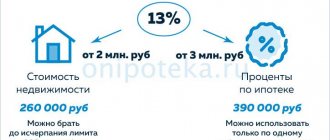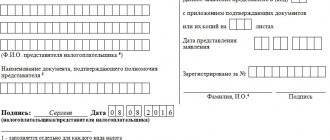The apartment was received by will
If the apartment has been owned for less than three years and was received by will or inheritance, there is a serious possibility that the other heirs will not agree that one of them took the entire apartment into his own ownership and did not share it with them.
As a result, they may sue and declare the distribution of the inheritance incorrect/invalid. As a result, the seller loses ownership of the home and, logically, the purchase and sale transaction is also considered illegal.
The buyer is obliged to return the apartment and can demand money from the seller. The general principles here are similar to the situation described above. Simply put, you will have to return the apartment anyway, but demanding money will be problematic.
The problem can be solved by making sure that all other heirs also received the property of the deceased in proportion to the seller’s apartment and do not have any claims to it. It’s even better if the seller is the only heir.
This is important to know: How to file a claim to confirm ownership
Challenging the transaction
Why is the period of three years important? The fact is that, according to Art. 196 of the Civil Code of the Russian Federation, for most transactions the limitation period is exactly this time (for invalid transactions, Article 181 specifically clarifies that the same period applies). Consequently, if the seller himself purchased an apartment with violations, the previous owner still has the opportunity to challenge the transaction - and in this case, the buyer will not be able to conclude an agreement.
However, the buyer has the same right. If he discovers that his rights during the transaction were violated, within three years he will be able to file a claim in court and get his money back.
But in order to avoid legal disputes, wasting time on them and money on duties, it is better for the buyer to protect himself in advance.
Undervaluation of housing
Despite the fact that the two above-mentioned problems are absolutely real, in practice they are much less common than understating the value of housing under a purchase and sale agreement. This may be relevant if, for example, the owner received an apartment as a gift from close relatives and wants to sell it in such a way as to minimize the amount of taxes or not pay them at all.
The fact is that when selling an apartment that has been owned for less than 3-5 years (depending on how the owner got it), you need to pay personal income tax in the amount of 13% of the sale amount minus the tax-free minimum (one million).
In order to avoid paying taxes or at least reduce their size, sellers deliberately underestimate the price of the apartment in the contract, but in fact the settlement between the seller and the buyer is made at the full cost.
Not only is such an operation itself quite dubious, but it also adds the risk that the seller will recognize the transaction as invalid. For example, on the grounds that he incorrectly valued the apartment or even sold the property without understanding its true value (being in an incapacitated state, and so on).
In such situations, the court most often sides with the seller. As a result, the buyer is obliged to return the property to the previous owner, and in return receives not the entire cost that he paid, but only 1 million specified in the contract.
There are practically no ways to solve the problem. A receipt will help in part, indicating the full amount of payment, but this document is given to the seller and is usually drawn up in one copy. It is logical that the seller can simply state that he did not receive any receipt.
FREE CONSULTATIONS are available for you! If you want to solve exactly your problem, then
:
- describe your situation to a lawyer in an online chat;
- write a question in the form below;
What are the dangers when purchasing housing on the secondary market?
Residential real estate sold in Russia is clearly divided into two large groups:
- New buildings are apartments that were previously owned only by the developer or that are generally being built under a shared participation agreement.
- “Resale” is housing that previously belonged to another owner.
Each group has its own risks. In relation to “secondary” apartments that have been owned by the seller for three years or less, the buyer runs the risk in the following situations.
By proxy
The use of intermediaries and attorneys is normal practice for transactions. The person who issued the power of attorney may simply not have the time or opportunity to personally find a counterparty, draw up an agreement, register the right, etc. However, when making a transaction using a power of attorney, you may encounter some unpleasant situations:
- The power of attorney expires before the registration of rights under Art. 551 Civil Code of the Russian Federation.
- The principal, who is the real seller, may, in accordance with clause 2, part 1, art. 188 of the Civil Code of the Russian Federation can be canceled at any time.
- The principal may die, become incapacitated or have limited legal capacity. In this case, the transaction becomes invalid, but the buyer may find out about this too late. And the notary who draws up the power of attorney, although he is obliged according to the norms of the Fundamentals of Notary Legislation to verify the identity and legal capacity of the person who has applied to him, is not a doctor and therefore cannot give absolute guarantees.
- The attorney himself may renounce his powers (Part 2 of Article 188 of the Civil Code of the Russian Federation).
- An attorney can also lose his legal capacity. Moreover, since he may not be present when the power of attorney is issued, the notary cannot bear any responsibility here.
- The powers of the representative may not include the right to sign an agreement for the sale of an apartment.
In all these cases, the result will be the same: the transaction may be declared invalid and the apartment will have to be returned to the seller or his heirs.
Important! The above risks apply only to circumstances where both the seller and his representative act in good faith. If the power of attorney was initially fake or the representative acted with criminal intent, we will be talking about fraud.
At a reduced price
It is typical for the secondary housing market that there are certain average prices for apartments. They vary from city to city, depending on the quality and area of the apartment, its location and other factors, but they exist. They can be easily recognized by looking at advertisements for sale on city websites or in recent newspapers. And if an apartment is sold at a price that is noticeably lower than that of comparable housing, the buyer should think twice.
There may be several reasons for lowering the price:
- The housing is in poor condition. Whether it is worth buying an apartment where the entire saved amount will be spent on repairs is up to the buyer to decide.
- There are problems with the ownership of the property (for example, a dispute between heirs or former spouses), and the seller wants to get rid of it as quickly as possible after receiving the money. This situation is fraught with the fact that the transaction may be challenged, or the right will never be registered in the Unified State Register of Real Estate.
- The apartment has encumbrances. It may turn out that one of the seller’s family members who refused privatization is registered in it, an arrest has been imposed on it, or there are other restrictions. The buyer can sometimes find out about this only after transferring money to the seller.
- The seller does not want to pay taxes. According to Art. 224 of the Tax Code of the Russian Federation, the seller in this case pays 13% of the amount received for the apartment, provided that he has owned the property for more than five (in some cases, three) years. If the contract specifies a smaller amount, then you will have to pay less tax.
The last one needs special attention. The fact is that taxes are paid not only by the seller, but also by the buyer, and according to personal income tax according to Art. 220 of the Tax Code of the Russian Federation has the right to receive a property deduction if he purchased housing. The upper limit of the deduction is specified in the Code, but in general it is determined by the amount of expenses incurred to purchase the apartment. By agreeing to a lower price, the buyer forces himself to pay more taxes.
Note! A price for an apartment that is too low is almost always a sign that something is wrong with it or with the deal.
If you buy a home that you inherited
The rules on inheritance provided for by the Civil Code of the Russian Federation also apply to housing. Having received the apartment, the heir has the right to sell it. However, the buyer may face some specific risks:
- Inheritance can be contested. Although the deadline for accepting an inheritance is set at 6 months, an heir who misses it for a good reason may, through the court, demand the redistribution of property and the allocation of a share to him. In this case, it may turn out that the seller will not own the apartment.
- The order of inheritance may be disrupted. The previous owner of the apartment could draw up a will and have it certified by any notary (not necessarily the one who deals with inheritance matters in this area) - but the relatives of the deceased, not knowing about the existence of the document, can formalize the inheritance in the usual manner provided for by Chapter 63 of the Civil Code of the Russian Federation.
In this case, if the will is discovered, the issue of division of inherited property will have to be decided anew.
The statute of limitations for inheritance disputes is exactly three years (Article 196 of the Civil Code of the Russian Federation). It is during this period that the transaction can be challenged by the heirs. In this case, three years are counted not from the death of the testator, but from the moment when the heir learned or should have learned that his rights were violated.
Purchase by gift
Sometimes, instead of a sale and purchase, the parties draw up a gift agreement and transfer the money separately. Such transactions are used for two purposes:
- The seller does not want to pay taxes.
- In the usual manner, the apartment cannot be sold (for example, its co-owners are minor children, and permission from the guardianship for sale is required).
What does this mean for the buyer? There is only one risk here, but a very big one: the law calls precisely such transactions feigned (Article 170 of the Civil Code of the Russian Federation).
According to civil law, such an agreement is void and can be terminated.
Important! In the same case, if the apartment was donated to the seller, and he sells it honestly, then the transaction will not be illegal. However, another risk arises here: within three years, the donor can protest the gift agreement on the grounds provided for in Art. 578 Civil Code of the Russian Federation.
Pitfalls of real estate with a mortgage
In some cases, it may turn out that the apartment that is being sold was itself purchased under a mortgage agreement. Its sale itself is legal - moreover, if the debtor does not pay for a long time, the bank demands the sale of the apartment and repayment of the mortgage debt using the proceeds.
However, you must remember: you can sell a mortgaged apartment only with the consent of the bank. Therefore, the agreement in this case will be, in fact, tripartite with the signatures of the seller-borrower, the buyer and an employee of the credit institution that gave money to the seller. Otherwise, the contract may be declared invalid, and the ownership right will not be registered in the Unified State Register of Real Estate.
Has the apartment been owned for less than 3 years?
literally means that the owner registered ownership of the property less than 3 years ago. Those. from the date of issue of the Certificate of State Registration of Rights, a full 3 years have not yet passed.
“Fresh property” is an essential condition for the purchase and sale of real estate . The seller is subject to tax (personal income tax 13%), and the buyer may face unacceptable risks.
If the seller received property under a gratuitous agreement (for example, privatization, gift or inheritance), then he has the right to a tax deduction of 1 million rubles. If the property right is more than 3 years old, then the seller has the right to a tax deduction equal to the value of the property sold.
Competent execution of the transaction
It is important to formalize the purchase and sale transaction in such a way that no justified claims can arise against it in the future. A competent lawyer who will draw up all the necessary documents will help with this.
We will briefly examine the main points that should be taken into account when registering.
Negotiation of conditions
All conditions must be agreed upon in advance and discussed in detail so that no further discrepancies arise. Separately, it is worth immediately agreeing on the method of payment and the procedure for carrying out the transaction, and then fixing them in the contract.
Conclusion of an agreement
The text of the agreement should contain the following points:
- place and date of compilation;
- personal information of both participants;
- characteristics of the property (address, area, book value, etc.);
- what documents confirm the seller’s ownership;
- the essence of the transaction and the amount for which the property is being sold;
- guarantee of absence of encumbrances and other persons having rights of ownership or residence;
- designation of the party who will bear the costs associated with registering the agreement, or an indication that they will be divided equally;
- other procedural issues (the period within which the apartment must be vacated, the issuance of copies of the agreement to the participants, which notary will keep the additional one, and others);
- details and signatures.
Also, additional clauses may be included in the contract, for example, the seller’s obligation to assume responsibility to them if third parties have claims on the property.
A sample contract, from which you can get a more complete impression, is attached to the article.
Property registration
The transaction ends with the registration of the transfer of ownership of the apartment in Rosreestr, after which the buyer officially becomes its owner. To do this, an application and documents necessary for registration are submitted to the Rosreestr branch or to the MFC: a purchase and sale agreement, a cadastral passport, passports of the parties to the transaction, a receipt for payment of state duty. Sometimes others - a power of attorney, the consent of the seller’s spouse, and so on.
It is best to seek the help of professionals, and at the same time take care of selecting a real estate agency - one cannot exclude the danger of stumbling upon a poorly performing company, or even scammers. Therefore, the key to safety is full compliance with the law during purchase and sale transactions.
What is the tax for ownership less than 3 (or 5) years?
The seller must pay personal income tax (NDFL) of 13%. The tax base is the difference between the costs of purchasing a property and the cost of its sale. If the property has been purchased, the seller may indicate the cost of the purchase agreement in the costs of purchasing the property and add the costs of the mortgage and the costs of improvements made. Expenses must be documented.
If the seller received ownership of the object free of charge - donation, privatization and inheritance , then he can indicate only 1 million rubles in the expense section. The amount of 1 million rubles is determined for one piece of real estate (room, apartment, etc.), and if a share in the right is sold, then the corresponding share of 1 million rubles can be received as a tax deduction.
This is important to know: Statement of claim for recognition of ownership of a land plot by inheritance: sample
As you already understand, the situation where sellers expect to receive a 1 million tax deduction for each share is fundamentally incorrect and foreshadows conflict situations at the end of the tax year.
In Moscow, with a cost difference of 4 million rubles. the tax will be 520 thousand rubles. - a very significant amount for the seller. And very often, selling a property with “fresh ownership” involves various tricks. The main trick is to understate the cost of the apartment in the purchase and sale agreement to 1-2 million rubles. But apartments with reduced prices have low attractiveness in the eyes of the buyer, and can only be sold if the selling price is significantly reduced. On October 1, 2020, the Law “On Bankruptcy of Individuals” came into force, and the attractiveness of apartments with undervalued prices fell “to the plinth” .
What are the risks of “ownership less than 3 years” for the buyer?
There are quite a lot of real estate properties with ownership less than 3 (or 5) years old on the market: these are all “yesterday’s new buildings” and houses in new neighborhoods, and these are apartments in the old housing stock. Moreover, if “yesterday’s new buildings” usually have a difference of up to 30% in cost, then for apartments of the old housing stock received as property free of charge (donation, privatization and inheritance), the difference in cost will be 70-95%.
The buyer's main risk when purchasing real estate is the recognition of the purchase and sale agreement as void . There is a “restitution” of the rights and obligations of the parties under the contract: the property is transferred back to the seller, and the seller is obliged to return the money received to the buyer. In addition, the party guilty of declaring the contract void shall reimburse the other party for the expenses incurred.
And if the property is returned to the seller, then in most cases a refund is impossible: the money has been spent, and the defendant’s income is minimal.
With the entry into force of the Law “On Bankruptcy of Individuals,” the risks when purchasing apartments with reduced prices have increased many times over. An additional circumstance that may arise within 1-3 years from the date of a real estate transaction is the possible bankruptcy of the seller , which, coupled with insolvency, greatly increases the financial risks of the buyer.
A more detailed discussion of the buyer’s risks and ways to minimize risks is discussed in the corresponding article - Risks when buying an apartment and minimizing them.
How can a buyer protect himself?
Security measures depend on the type of risk, but there are some actions that the buyer must take in all cases:
- Carefully check the powers of the representative under the power of attorney and the validity period of the document.
- Personally order an extract from the Unified State Register of Real Estate and check who the owners of the apartment are and what encumbrances are registered.
- Request an extract from the house register and check who is registered in this property.
On a note. Finally, the buyer can protect himself by seeking help from specialists - lawyers dealing with housing issues or reliable real estate agencies.
Another risk arises here: how much should you trust a specialist? However, checking your reputation is easier than dealing with possible scammers or unscrupulous sellers.
Risks of purchasing an apartment less than 3 years old

The apartment has been owned for less than 3 years, the buyer’s risks when purchasing and how to reduce the risks when purchasing real estate, read the article!
Any sales and purchase transactions involving real estate that has been owned by the owner for less than three years are subject to a 13% tax on the income received by the seller.











